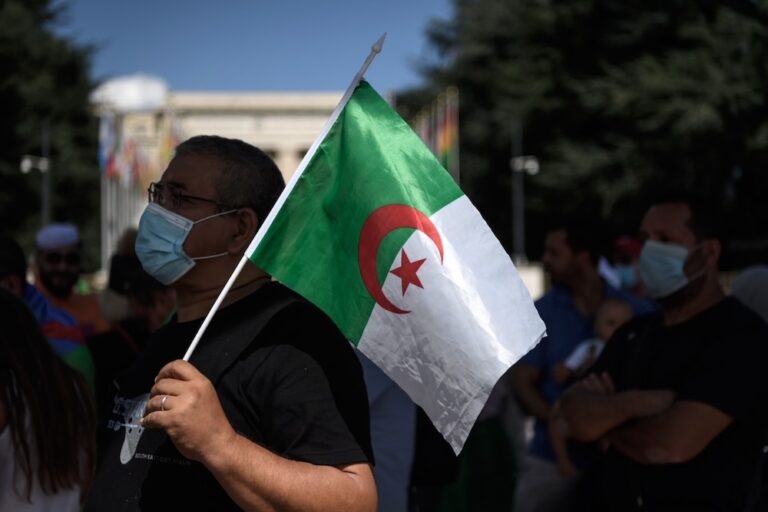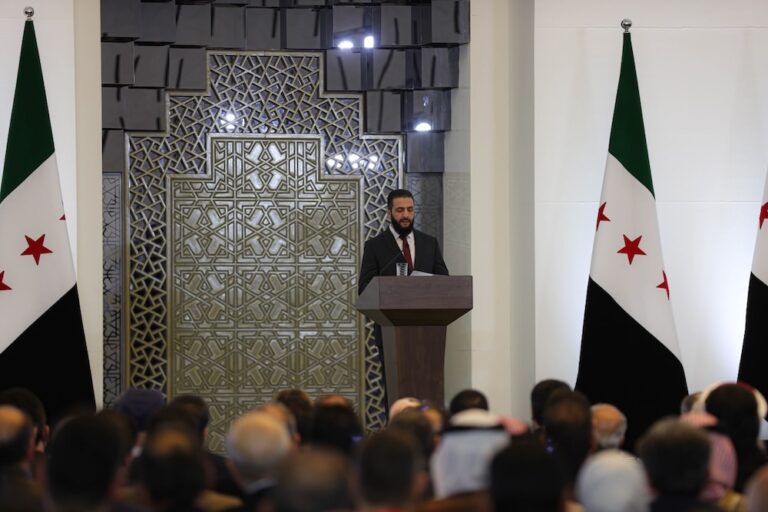When those who commit crimes against free expression are not held to account, it hurts us all. Visit daytoendimpunity.org every day from 1-23 November, and take action to end impunity.
On 1 November 2013, IFEX launched the third annual International Day to End Impunity campaign. And while there is a growing awareness of the problem of impunity and how it allows – even exacerbates – violations of human rights, the pressure needs to be kept up. The IFEX network comprises over 80 organisations working in more than 60 countries around the world, and includes some of the bravest people you would ever meet, working under some of the most dangerous conditions you can imagine. With this campaign we join our voices to raise awareness about how a culture of impunity stifles freedom of expression, and to inspire people to take action to weaken its power.
Impunity is a global problem. It’s utterly pervasive. It can be found anywhere in the world and it can take many forms. Whether it’s a case of a classroom bully or a corrupt dictator, when impunity reigns – when people in a society feel free to act without fear of consequences – some use that freedom to hurt others. To silence their voices. Especially the critical ones. The ones asking difficult questions, expressing different opinions or beliefs. The ones documenting abuses of power, crime, corruption. The ones photographing brutal attacks on peaceful protesters. The ones uncovering destructive industrial practices that threaten our environment, including the water we drink and the food we eat. The ones exposing companies that treat workers as slaves and force them to work in dangerous, inhumane conditions. Who does impunity silence? It silences those people, and their silence has huge repercussions for all of us.
Countless citizens, artists, bloggers, scientists, musicians and journalists have been harassed, threatened, tortured, intimidated, jailed and worse for exercising their basic human right to free expression. Over 500 journalists have been killed in the last decade. Most of the perpetrators of these crimes can count on never being brought to justice. The impact is not hard to imagine. In a country where someone is murdered with impunity for reporting on corruption, how likely is it that another will take that work on?
Campaigns are about changing things. While the impact of campaign actions is not always immediately apparent, especially when the goal is systemic change, in some cases the effect is both immediate and tangible. For example, last year’s campaign profiled Tuver Wundi, a television reporter and environmental activist from Goma, the Democratic Republic of Congo. At that time he had been in hiding since July 2012. That’s when members of the M-23 rebel movement had threatened to kill him for publically denouncing their occupation of Virguna National Park. After the 2012 campaign, which drew worldwide attention to his case, Wundi said:
“The campaign generated a lot of media coverage and deep public engagement in DRC. It put a lot of pressure on the government to provide me with security, and gave other journalists courage to continue their work.”
This year’s campaign includes calls for actions to be taken now in support of five courageous individuals: Yorm Bopha, a Cambodian human rights activist repeatedly threatened, beaten and currently in prison for peacefully protesting against land grabs; Eren Keskin, a rights defender in Turkey threatened and shot at while seeking justice for women who have been raped and tortured; Doaa Eladl, an Egyptian cartoonist threatened for creating cartoons which have been deemed blasphemous; Martin Pallares, an Ecuadorean journalist threatened for reporting on government corruption; and Rommy Mom, a lawyer in Nigeria fighting for government transparency and accountability, who has had to flee his home following death threats and a public denunciation over the radio by the governor of the state. Joining in this effort IFEX member organisations around the globe will be launching their own initiatives, adding their voices to the call to end impunity.
The campaign’s hub is daytoendimpunity.org. Something new will be featured there every day between 1 and 23 November – the International Day to End Impunity. We’ve created multimedia resources to help people understand the problem and find ways to add their voices to a global network of activists working together. Through infographics, videos, online interactive experiences, articles, country profiles and interviews, we hope to engage more people than ever in this campaign that strikes at the very roots of the injustice and insecurity that silence expression.
The right to free expression scares a lot of people. It is not only an important right in itself; it is the right that allows violations of other rights to be exposed. Visit daytoendimpunity.org every day from 1-23 November, and take action to end impunity.



